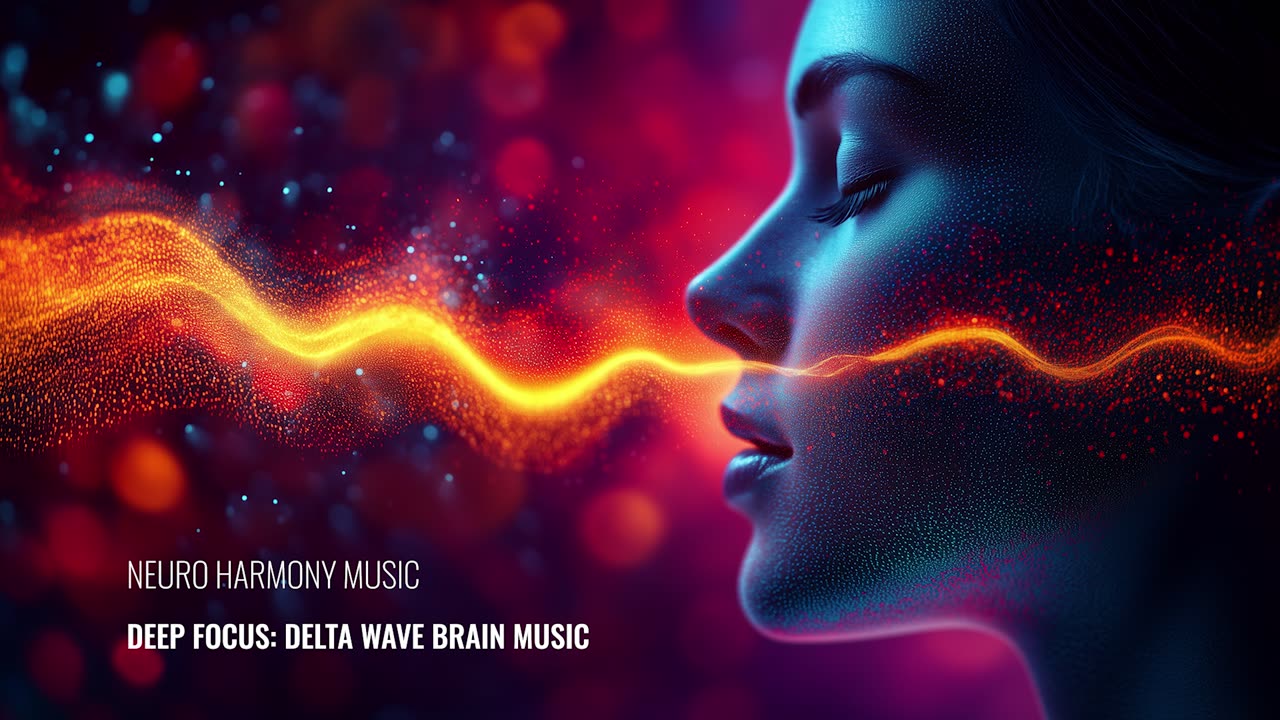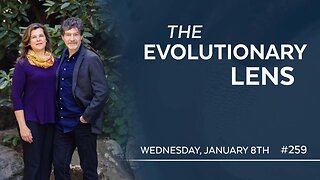Premium Only Content

Brain Wave Music Delta Wave
The Key to Deep Sleep and Healing Through Music
In the fast-paced world we live in today, finding time to unwind, relax, and get quality sleep has become more of a challenge than ever before. With constant notifications, work deadlines, and an ever-present stream of information, our brains are often left in a state of overdrive, preventing us from achieving the deep, restful sleep we so desperately need. But what if there were a way to use music, specifically designed to target the brain’s natural rhythms, to help us achieve a deeper, more healing sleep?
Enter brainwave music sleep, an innovative approach that leverages brain music delta waves to facilitate deep relaxation, healing, and restful sleep. Delta waves, the slowest of the brainwaves, are strongly associated with the deepest stages of sleep and the body's most restorative processes. Understanding how to harness these waves can be the key to transforming your sleep and overall well-being.
The Science of Delta Waves and Sleep
Delta waves are a type of brainwave that oscillate at a very low frequency, between 0.5 to 4 Hz. These slow-moving waves are prominent during the deepest stages of sleep, also known as non-REM sleep. When your brain is in this state, you experience deep sleep and your body undergoes critical restoration processes, such as tissue repair, immune system strengthening, and detoxification. This is why brain waves sleep delta are so crucial for overall health.
Music embedded with delta waves helps guide your brain into these lower frequencies, encouraging deep sleep and healing. This is where deep sleep music and binaural beats come into play. By listening to specific sound frequencies through binaural headphones, your brain is tricked into syncing with those frequencies, creating the ideal environment for deep sleep and recovery.
Binaural Beats: Synchronizing Your Brain for Deep Sleep
Binaural beats are an auditory illusion created when two different frequencies are played in each ear. For example, if you listen to a 200 Hz tone in your left ear and a 205 Hz tone in your right ear, your brain perceives a binaural beat of 5 Hz—the difference between the two. This frequency can correspond to the brainwave frequencies that promote relaxation, sleep, and meditation. When the frequency of the binaural beat matches the delta waves associated with deep sleep, it encourages the brain to enter a state of calmness and deep relaxation.
Many people use binaural beats in combination with sleep music to enhance their sleeping experience. By targeting delta frequencies, deep sleep music helps the brain shift into the deep sleep phase faster, reducing the time spent tossing and turning. This is one of the most effective ways to achieve better sleep without resorting to medication.
The Role of Relaxing and Meditation Music in Sleep
In addition to binaural beats, other forms of relaxing music and meditation music play an essential role in preparing the mind for rest. Meditation music is often composed of soothing tones and harmonies that help slow down brain activity, lowering stress levels and promoting a state of calmness. Pairing this with sleeping music that features delta waves can further help the brain prepare for deep sleep.
Healing music, a category of relaxing music, works on multiple levels. While it calms the mind and body, it also has been known to promote emotional healing and balance. Many who practice meditation or mindfulness find that pairing these activities with meditation music helps deepen their experience, making it easier to transition into sleep afterward. By promoting calm, reducing stress, and synchronizing brainwaves, calm music sets the stage for a peaceful night's rest.
Unlocking the Healing Potential of Deep Sleep
It's not just about getting more sleep, but about getting better sleep. When your brain enters the deep sleep stages, it releases growth hormones that repair muscles and tissues. The immune system is strengthened, and the brain detoxifies, flushing out harmful proteins that could lead to conditions like Alzheimer's disease. This is why brainwave music sleep, particularly music that includes brain music delta waves, is so transformative. It's not only helping you sleep longer but also ensuring that your body receives the deep restorative benefits of sleep.
Healing music in the form of binaural beats, meditation music, and sleep music is a natural, non-invasive way to achieve this. Unlike pharmaceuticals, which often have side effects and can lead to dependency, binaural beats and sleeping music work by engaging the brain’s natural processes. You’re not forcing sleep upon your body; you’re allowing it to happen by tuning into your body's natural rhythms.
How to Incorporate Brainwave Music Into Your Routine
To fully unlock the power of brainwave music sleep, it's essential to make it a part of your nightly routine. Start by creating a relaxing environment—dim the lights, eliminate distractions, and play some deep sleep music or calm music about 30 minutes before bedtime. If you’re looking for a more targeted approach, use headphones to listen to binaural beats that are specifically designed for sleep.
You can also use relaxing music or meditation music during the day, especially during stressful moments. These types of music help calm your mind and body, making it easier to transition into sleep when the time comes.
Conclusion: Sleep, Music, and Healing
Incorporating brainwave music sleep, especially music with brain music delta waves, into your daily routine could be the key to unlocking deeper, more restful sleep and overall wellness. By harnessing the power of delta waves, binaural beats, and relaxing music, you can transform your sleep quality and wake up feeling refreshed, restored, and ready to face the day.
Ultimately, deep sleep music, binaural beats, and other forms of healing music serve as powerful tools for sleep improvement and overall health, empowering you to take control of your well-being in a natural and effective way.
-
 DVR
DVR
vivafrei
7 hours agoInterview with Enrique Tarrio's Mother - Viva Frei Live
19.1K13 -
 53:07
53:07
Candace Show Podcast
1 hour agoBlake Lively VS Justin Baldoni: The Revenge of #MeToo | Candace Ep 128
13.4K34 -
 LIVE
LIVE
Scammer Payback
2 hours agoCalling Scammers Live
111 watching -
 1:59:04
1:59:04
Darkhorse Podcast
4 hours agoThe 259th Evolutionary Lens with Bret Weinstein and Heather Heying
20.3K18 -
 LIVE
LIVE
Dr Disrespect
6 hours ago🔴LIVE - DR DISRESPECT - DELTA FORCE - ATTACK AND EXTRACT
4,010 watching -
 LIVE
LIVE
Film Threat
4 hours agoHOLLYWOOD IS ON FIRE! | Hollywood on the Rocks
291 watching -
 9:53
9:53
Gun Owners Of America
4 hours agoConstitutional Concealed Carry Reciprocity Introduced to Congress!
5.86K5 -
 1:52:31
1:52:31
The Quartering
5 hours agoTrump Hotel Attack Planned With ChatGPT, Wildfires Rage & Liberals Celebrate, Biden Roasts Kamala!
59.7K23 -
 12:51
12:51
Chef Donny
3 hours agoTossing Coach Jon Gruden A Caesar Salad | What's For Lunch
17.5K1 -
 1:30:57
1:30:57
Mally_Mouse
3 hours agoLet's Yap About It - LIVE!
10K9